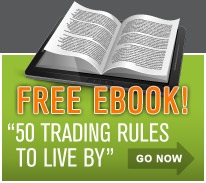Shedding Some Light on SPACs
One of the hottest “new” investment and trading products over the past couple of years has been the SPAC. Short for special purpose acquisition company, SPACs have actually been around for decades. Due to several high-profile deals and a massive increase in interest from Wall Street, it is understandable why retail traders have also become curious. I have been approached by several folks recently, asking me what I thought about investing in and/or trading in these types of securities. Let’s take a brief look behind the curtain to see what these special purpose investment vehicles are all about.
What Is a SPAC?
A special purpose acquisition company (SPAC) is a corporation without any actual commercial operations. Essentially a shell company, the SPAC is formed for one specific reason: to raise money through an initial public offering (IPO). The only purpose of the capital raised in the IPO is for acquiring an existing company. SPACs have also come to be known as "blank check companies."
While they have been around since 1993, they've become much more popular recently, attracting big-name underwriters like Goldman Sachs and investors like Bill Ackman. Pop stars and celebrity athletes have also gotten into the SPAC business, with A-Rod, J-Lo, Shaq, Ciara and others lending their superstar names to this booming market segment.
What Are the Details?
There are several rules that differentiate a SPAC IPO from a traditional IPO. These include 20% higher share prices than if a company goes public with a typical IPO or private equity deal. Also, the entire process generally goes much quicker due to the rules associated with these special purpose companies.
The money SPACs raise in an IPO is placed in escrow into a trust account. Funds are not disbursed for any other reason than to complete an acquisition (or to give back the proceeds to investors if the SPAC does not find a suitable acquisition candidate). A SPAC has two years to complete a deal according to the rules in place. After an acquisition, a SPAC is listed on one of the major stock exchanges.
How Big Is the SPAC Market?
The growth of this niche Wall Street business has boomed recently. In 2019 the SPAC market totaled $13.6 billion, increasing to $83.3 billion in 2020 and $122.4 billion as of Sept. 1 of this year. That is some massive growth. But as with almost all things, what goes up must come back down. SPACs have been decimated as of late, losing a huge amount of their value after starting the year strong.
According to The Wall Street Journal last week, a big sell-off has reportedly cut down the valuation of SPAC by $75 billion. The 137 SPACs that had closed mergers as of February have now lost 25% of their combined value, The WSJ stated, with the pullback at one point reaching over $100 billion. The value of the SPAC market is still sitting at $250 billion or so, an increase from $100 billion just a year ago.
SPACs and Retail Traders/Investors
I visited the SEC website to get its take on the SPAC speculative fervor that has overtaken the marketplace. I found that a couple of public interest groups have sent a letter to the SEC, petitioning the commission for more scrutiny and transparency with regard to these products. The SEC seems to recognize that SPACs can now evade the restrictions Congress adopted with traditional IPOs that protect investors from “misleading information, conflicts of interest, and fraud.” SPAC sponsors, target companies and advisors are protected from liability for overly optimistic projections. That is in contrast to traditional IPOs where unfounded financial projections are restricted.
The letter said many of these investors are retail investors who “are often drawn to SPAC investments by the publicity and hype” and “are likely unaware of the complexity of fee arrangements or the expected dilution that will eventually erode the value of their investments.” The letter suggested apps such as Robinhood played a part in all this hype
Final Thoughts
It seems possible that much of the boom of the SPAC market may have been fueled by conflicts of interest and compensation to corporate insiders at the expense of retail investors. As is always the case, an educated trader and investor is the best kind of market participant. As Justice Louis Brandeis, who served on the U.S. Supreme Court in the early 20th century, so aptly stated in the book “Other People’s Money,” “sunlight is the best disinfectant.” Be careful out there and happy hunting!
Joe Leska, Market Taker Mentoring
